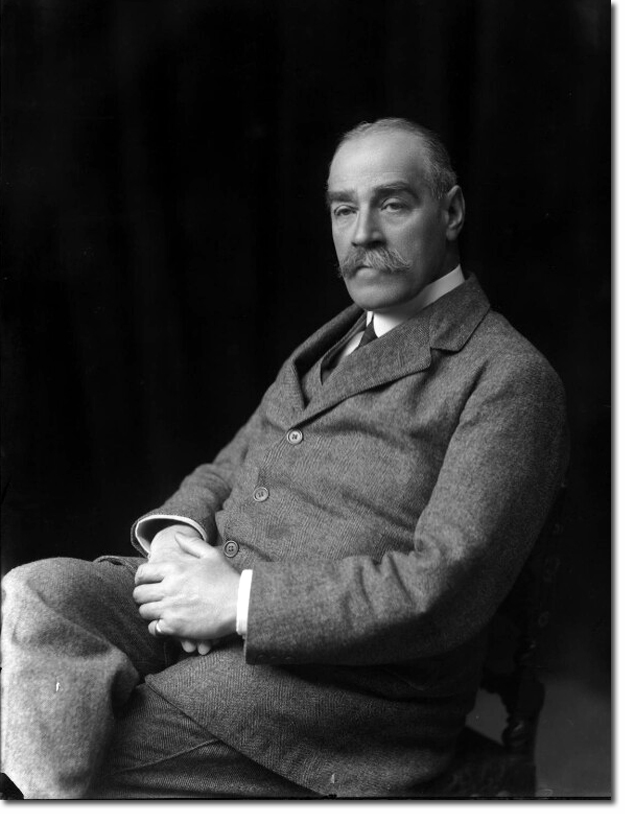|
|


|
|
Sir Matthew Nathan had a background in the Royal Engineers and had been perceived as a reliable Governor in West African colonies of Sierra Leone and Gold Coast . He was Jewish in an era of rife anti-semitism on the continent and understated prejudice in many British establishment spheres. His appointment to Hong Kong was seen as something of a reward for this unflappable and cool bureaucrat who performed well under pressure. It was also thought to be an advantage for the newly expanded Hong Kong to have someone with experience of the District Officer and Indirect Rule style of government which he undoubtedly had picked up whilst in Africa.
His engineering background also meant that he took a keen interest in the infrastructure required to increasingly integrate the New Territories into Hong Kong itself. He took great interest in building Nathan Road from Kowloon into the hinterland of the new lands (often referred to as Nathan's Folly by those who wondered who might use it). However his biggest legacy was actually with the Kowloon-Canton railway. A concession had already been granted to a Jardine Matheson owned British and Chinese Corporation. However, work had not begun for many years and Sir Matthew Nathan suspected they were sitting on the land as speculators and hoping to sell off the concession for a profit. Seeing this bottlenect to development, he proposed that the Britain and China should buy back the concession directly rather than allow it to fall into foreign hands (French or Russian for instance) and construct the railway collaboratively. He arranged for favourable loans to be provided to the Chinese government for their share of the project. There were delays over providing the money and the diplomatic difficulties of coordinating the two governments, but eventually the railway construction process was underway. It opened to the border in 1910 and all the way to Canton by 1912. Although completed after Sir Matthew Nathan's tenure, the railway acted as an enormous stimulus to the development of the colony (and of neighbouring Chinese lands). Sir Matthew Nathan faced the diplomatic fall out of the Russo-Japanese war during his tenure. Britain had entered into an Alliance with Japan in 1902 and could be regarded as a legitimate target by the Russians. Especially after the Russian fleet ineptly destroyed British fishing vessels in the North Sea mistaking them for Japanese destroyers. The Royal Navy's China Squadron was put on full alert as the Russian fleet approached the Pacific. Russians were interred until the war was over and serious vigilance was enacted to reduce arms smuggling that might pre-empt any Russian retaliation. Fortunately the swiftness of the Russian defeat saw the crisis pass relatively quickly. Widespread anti-American demonstrations broke out in the colony as news arrived of American discriminatory anti-Chinese labour laws had been introduced. Many Chinese travelled from Hong Kong to take up employment on the West Coast or sent remittances home. American goods were boycotted and the Chinese Chamber of Commerce sought to elevate the protests. Sir Matthew Nathan reacted negatively towards these actions by banning planned public meetings and clamped down on anti-American newspaper cartoons and articles. He received the thanks of the American Secretary of War Howard Taft but was less enthusiastically supported by his own Colonial Secretary, Alfred Lyttleton, who felt he was moving beyond his legal abilities. The conditions of Chinese workers was also becoming a hot topic in British politics especially over their treatment in South Africa. Eventually it would be one of the contributory factors to bring down the Conservative Government. So the issue may well have contributed to Sir Matthew Nathan being moved out of the governorship relatively rapidly although ironically being sent to the Southern African colony of Natal! Image Courtesy of National Portrait Gallery |
Hong Kong | Governors of Hong Kong
Armed Forces | Art and Culture | Articles | Biographies | Colonies | Discussion | Glossary | Home | Library | Links | Map Room | Sources and Media | Science and Technology | Search | Student Zone | Timelines | TV & Film | Wargames